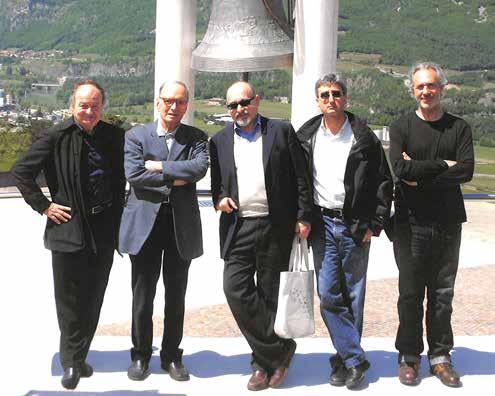Getting a piece of the “African” Pie
Even though the African continent has been characterized by a long, and sometimes dramatic, history of forced colonization processes (which took place between 1833 and 1914) and tormented struggles for the conquest of national identities (which ended during the “cold war”), never as in this period has it been the object of attention (not without a certain interest) of the major players in contemporary politics. Simply consider the visits over the last 12 months by Emmanuel Macron, Olaf Scholz, Sergei Lavrov, Qin Gang (new Chinese Foreign Minister) and Anthony Blinken, as well as Italian prime mini-
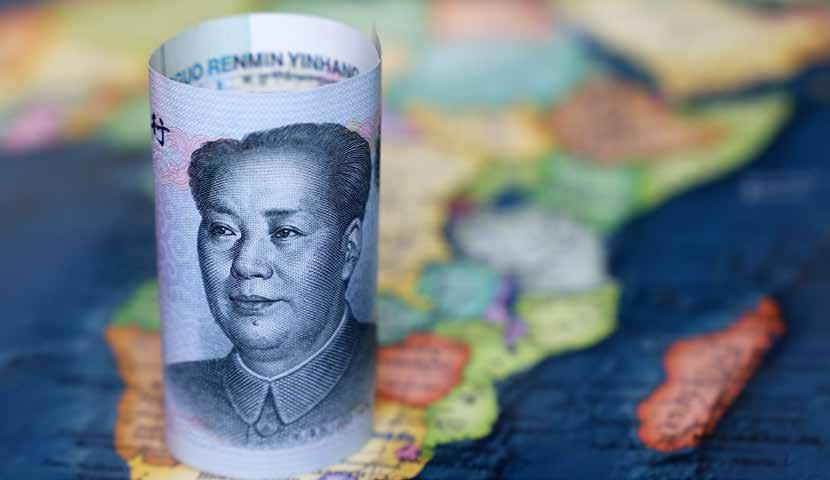
ster Giorgia Meloni, on whose trip to Algeria and Libya and Ethiopia we will return briefly at the end of the article.
Aside from the states of “old Europe” which are striving, with rather unimpressive results, to keep their presence alive, a presence which was built in the colonial era in decidedly less “globalized” conditions than at present (in the period mentioned above, the so-called “partition” of Africa was their exclusive privilege), today practically all the large and medium-sized world powers operate on this continent.
To be continued on page 6...
Not words but action
INTERNATIONAL DAY OF LIVING TOGETHER IN PEACE
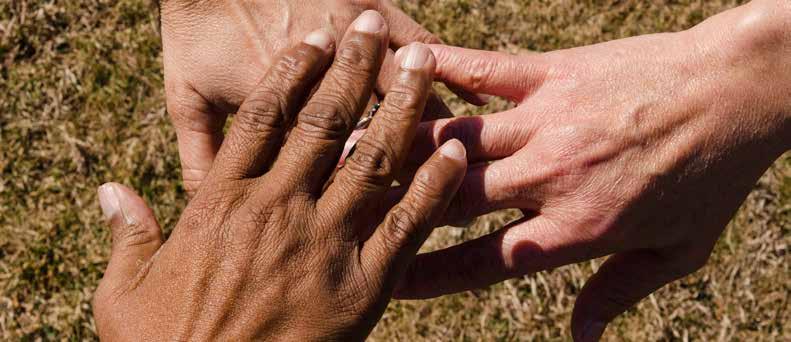
Many Western citizens live in countries that have not experienced an armed conflict for over seventy years. In some areas of the “old continent” there hasn’t been a bombing since that time, but things are already changing beyond the Adriatic Sea. We only need to think back to what happened between 1991 and 2001 in the former Yugoslavia. The end of the Second World War, for many, heralded a long period of Peace, and gave the illusion that nothing like it could ever happen again.
One gets the impression that in the second half of the twentieth century the conflicts were limited to the “cold war”, to those of the Balkans, and to some territorial problems scattered here and there. But it is a
wrong impression, a kind of psychological synecdoche, in which we mistake the part for the whole. We look at the garden of our house and think that flowers grow in the same way everywhere.
In the world the number of wars has never even touched zero, and the conflict in Ukraine is only the latest in a very long series of territorial and political disputes. Now we notice it more because the shooting is a few kilometres from our homes, but we’re getting used to this too.
According to experts, however, the substantial difference compared to the last century is not the place where wars take place, but the parties involved. Most of today’s conflicts are not waged between states. According to the United Nations: «Protagonists today are above all political militias, criminal gangs or international terrorist groups. Unresolved regional tensions, the collapse of the rule of law, the absence of institutions, illicit economic gain and the lack of resources are the main causes. All exacerbated by the weight of climate change.
Not only are there more wars than before, but they are also harder to avoid or to end. For this reason, the International Day of Living Together in Peace, celebrated by the United Nations on 16 May, is not an exercise in gratuitous kindness, but a moment in which to reflect on finding new ways to face new “chal-
The long period of Peace following the Second World War gave the illusion that nothing like it could ever happen again
lenges”. The Day aims to stimulate the international community to produce the necessary efforts to promote the tolerance, solidarity and inclusion necessary to maintain peace. Tolerance, solidarity and inclusion are not free, we must work towards them. For example, as suggested by the UN, «by working with communities, religious leaders and other relevant figures, through reconciliation measures and acts of service and by encouraging forgive -
ness and compassion among individuals». For this reason, affirming the stance “for Peace” does not necessarily imply “against war” in a generic sense, but rather working so that those in need receive help. No one is marginalized, and above all the word “tolerance” is abolished from the dictionary, as there is no need to “tolerate” those who are “different” for we only need to accept and welcome them.
MARIA DOLENS PRESENTED WITH THE “SANT’ALFIO: SOURCE OF PEACE” AWARD
The Rovereto Peace Foundation was granted the prestigious «Sant’Alfio: Fonte di Pace» award on 15 April and it was presented to the Foundation treasurer Fabrizio Paternoster. The recognition has been awarded by the Administration and Club of UNESCO Acireale since 2008, when UNESCO officially acknowledged the «Castagno dei cento Cavalli » (Hundred-Horse Chestnut tree) as a «Messenger of Peace in the World Monument». The Hundred-Horse Chestnut is located in Sant’Alfio outside the perimeter of the Etna Park and is a monumental tree belonging to the «Castanea sativa» species. Despite numerous studies no certain date of its age has ever been attained. It is believed to be between 2,000 and 4,000 years old.
 The treasurer of the Rovereto Peace Foundation, Fabrizio Paternoster, receives the «Sant’Alfio: Source of Peace» Award
The treasurer of the Rovereto Peace Foundation, Fabrizio Paternoster, receives the «Sant’Alfio: Source of Peace» Award
The difference compared to the last century is not the place where wars take place, but the parties involvedThe voice of Maria Dolens
HAPPENING AT THE COUNCIL OF EUROPE
Who defends our rights?
On any given day, without even thinking about it, each of us has exercised a right guaranteed by the Council of Europe. Experts know this and repeat it in their public interventions, citizens less so. The problem is how to transfer the debate from conference tables to kitchen tables. From scholarly dissertations to domestic discussions. This is the aim of the Special Days organized across the continent to explain not only what exactly the Council of Europe does, but also how the work it does directly affects our lives, every day.
In an event organized for the 75th anniversary of the Congress of the Hague, Barbara Oomen, professor of human rights at Utrecht University and president of the HZ University of Applied Sciences, demonstrated how significant the impact of the Strasbourg Assembly is in the defence of rights that many on our continent take for granted. «In recent decades, the rights of every single person in the 46 member states have been strengthened: whether they are journalists, children in divorce cases, or those who rely on the right to a fair trial» Oomen stressed. «On any given day, a normal
family with children attending a religious school is protected by the right to education in the European Convention on Human Rights. A man concerned about his privacy is protected by Article 8 of the European Convention. A person with psychiatric problems has the right to an independent evaluation by virtue of a ruling at the European Court of Human Rights», she explained.
For those who wish to be picky, the expert cited only some of the cases in which we exercise rights
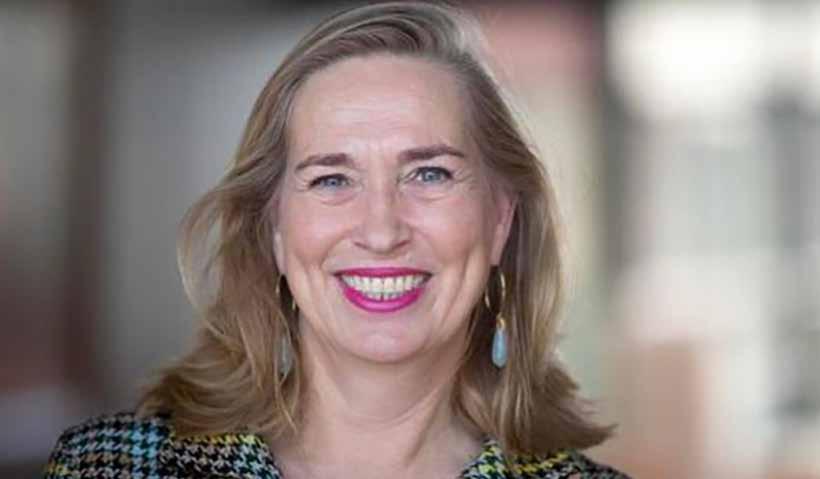
Special days organized to explain how the work done in Strasbourg affects our daily lives
without knowing exactly who guarantees them. Education, health care and housing, the ways in which we are able to express our opinions, the ways in which we participate in social life or spend our free time and other aspects of our daily life are regulated and protected at the supranational level by the Council of Europe.
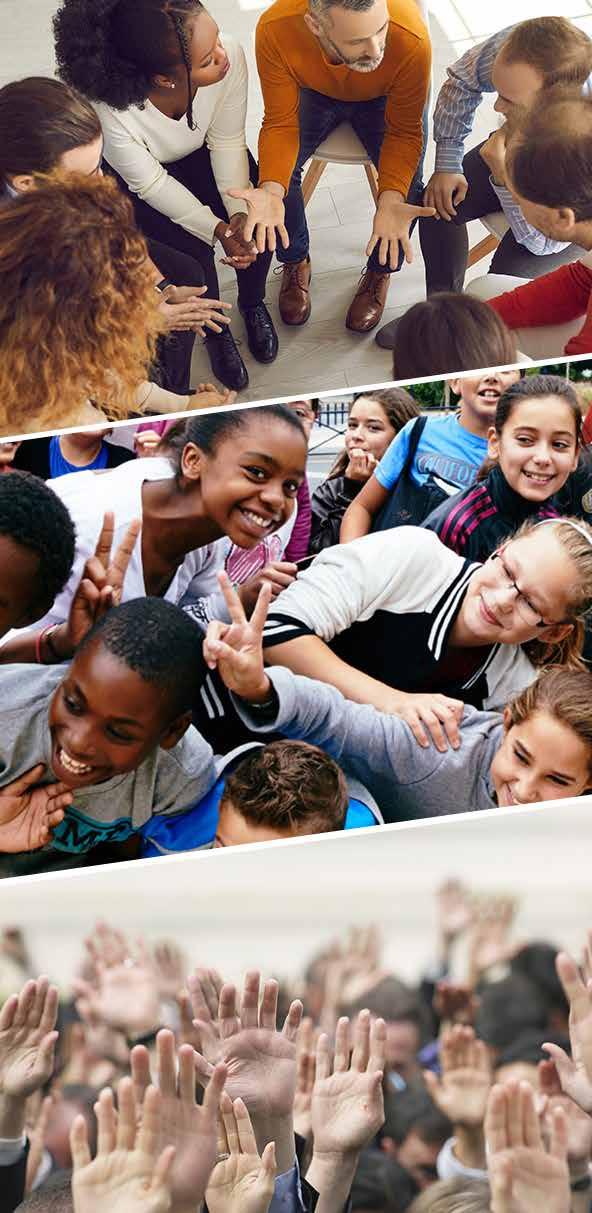
The Special Days, therefore, serve precisely to «let people know what their rights do for them».
But it is not enough. The promoters of the initiative hope that the events scheduled in many countries will reach different social groups, associations and individuals, even those with distant political positions so that there is an increase in the number of those who are motivated to participate, to organize initiatives and to give visibility to our fundamental rights and freedom together with the positive impact that the Council of Europe has in guaranteeing them.
The hope is that no one needs to claim a right because it is denied. The certainty is written in black and white in several Conventions so that we may all assert our rights.
In recent decades, the rights of every single person in the 46 Member States have been strengthened
To be continued from page 1...
In particular, the presence of the People’s Republic of China (PRC) is now largely consolidated. A presence destined to further strengthen over time, based on the consideration that the PRC, where one fifth of the total population lives and which has the second largest manufacturing sector in the world, owns only 7 percent of arable land and is known to be poor in raw materials and energy sources. Between China and the African continent is a complementarity, which translates for the latter into a welcome increase in available resources in the short-term but, in the long run into a position of increasingly marked dependence.
From a European point of view in particular, the above picture takes on even more worrying tones considering the fact that the Chinese example has quickly been adopted as a model by a series of other players, by no means secondary, such as Turkey, the Gulf States and India.
In contrast, the response from the Russian Federation is based on considerations pertaining almost exclusively to the political and military sphere and Russia is infiltrating by means of a different approach, which has been increasingly evident over the last few years. Through the provision, in favour of a series of semi-dictatorial regimes, of a few thousand paramilitary soldiers (the infamous Wagner militias), Moscow has managed to carve out a consistent level of influence over a substantial group of countries, offering them a much-appreciated asset, namely security from possible destabilizing attacks.
Starting from the north and moving down the map, the first of them is Tripolitania. Then come Mali, Burkina Faso, Sudan (currently in the throes of bloody clashes between the army and the paramilitaries which have cost the lives of hundreds of civilians, and which forced Western countries to hurriedly organize complex evacuation operations for their own citizens residing there), the Central African Republic, the Democratic Republic of Congo (DRC), Congo Brazzaville and finally Malawi.
In all the situations mentioned, the scheme adopted by the Kremlin is as simple as it is effective: full support, both military and economic, (which undoubtedly includes the well-known “wheat agreement” stipulated with Turkey) granted to the autocrats in power, in exchange for their “understanding” attitude in the voting at the UN General Assembly regarding the ongoing conflict with Ukraine.
With this in mind, some political analysts have come to wonder whether there is some form of preliminary agreement between China and Russia (obviously not disclosed externally) aimed at dividing up the rich “African loot”, with Beijing pocketing the economic dividends and Moscow reaping the geo- strategic benefits.
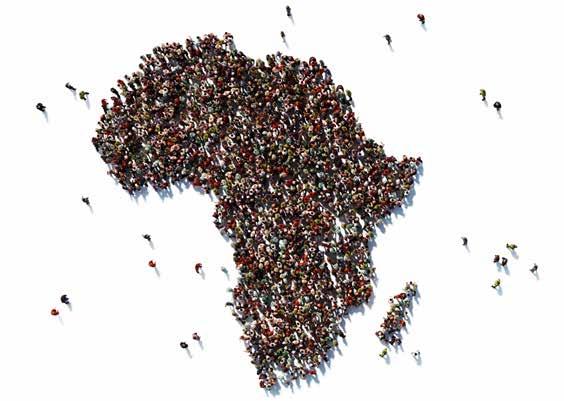
Even if this hypothesis will most likely never be confirmed, it still appears undeniable how the strategies of these two great capitals are characterized, either because they are coordinated one with the other or spontaneously, by a clear anti-Western connotation.
The recognition of this objective threat prompted President Macron in March of this year to carry out an Africa tour in four countries (Gabon, Angola, Congo Brazzaville
and the Democratic Republic of the Congo) to reaffirm the desire from Paris to continue to represent a solid point of reference on the continent. One must admit that the welcome given to him by the local authorities and populations was not exactly friendly. The lowest point was reached in Kinshasa, the capital of the DRC, where Macron was indeed greeted by a riot of blue-white-red flags, but with the colours arranged horizontally, as in the Russian flag.
Returning to the beginning of the article, a brief comment is also necessary on the trip made to Algeria and Libya by Prime Minister Meloni at the end of January and repeated in mid-April by the mission to Ethiopia, in order to brief the respective governments on the existence of the cooperation agreement, known as the “Mattei Plan”.
While more complete details are not yet known on its contents (these are to be disclosed during the Italy/Africa intergovernmental summit next October), it appears nonetheless that energy sources (gas and oil supplies) and the phenomenon of migration (in an attempt to curb the current major flows) have been established as the two central points. These issues are also top priority in Italy’s political, economic and social agenda.
With clarification that the initiative could gradually be extended to other countries in the Mediterranean area, the final observation of our editorial, of a more general nature, is as follows. In order to attempt to stem the increasingly marked involvement on the “dark continent” of the dreaded “demokratura”, primarily the Chinese
and the Russians, before it becomes too late, it is vital that the European Union makes a decisive adjustment in its course of action with regard to African policy, shelving, or in any case reducing, the range of interventions of more or less non-repayable assistance and replacing them with relationships of qualified and responsible cooperation which should be stipulated on an equal basis.
In relation to this, it is also necessary to avoid imposing rules and principles on that continent in the future which, although valid in Europe, appear difficult to export elsewhere. Furthermore, there is the need, regarding African rulers, to put a definitive end to attitudes or public declarations of a paternalistic manner, a legacy of a past that has now disappeared. Moreover, even in the field of migration there are unsuspected areas of cooperation, if one reflects on the fact that a substantial part of the flows of people originating from the continent (approximately one third of the total) do not have Europe as their final destination but rather other African countries.
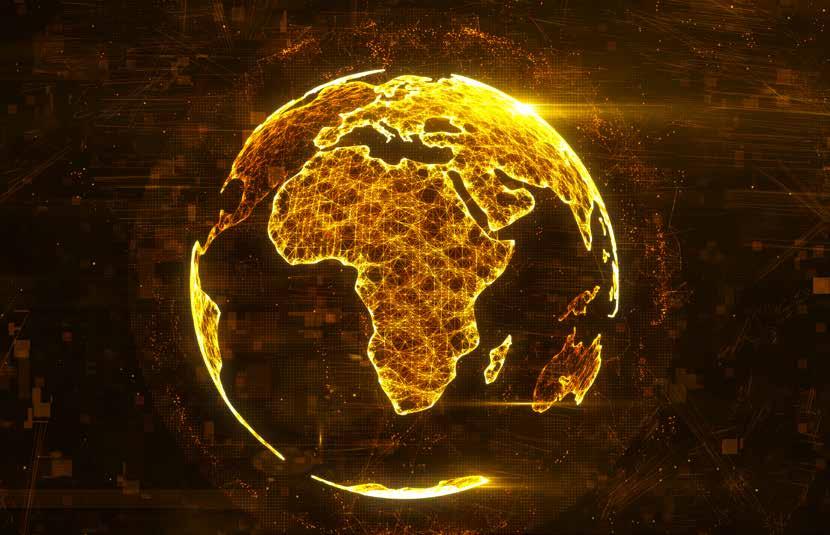
There is still time to spare, but it must not be wasted, if we wish to avoid that European representatives discover, at their expense, that the seats at the negotiating table with the local authorities in future African missions, which have so far been reserved for them, are now permanently occupied by the new protagonists of the international political scene and that, as happened to Macron, even the demonstrators take note and behave accordingly.
President Reggente Marco Marsilli, FoundationIT HAPPENED
Morricone at the Bell
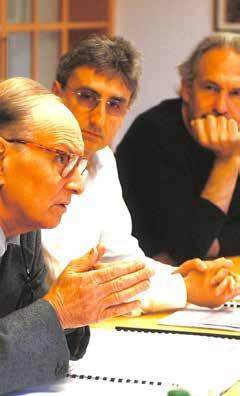
«Once upon a time there was… – A king! – my young readers will immediately shout». No, a group of composers, and the readers aren’t young. «But what do they have to do with Peace?». They are relevant, first of all because they were particularly good, and good artists always work for dialogue, tolerance, and understanding between different cultures, and secondly because they formed the jury for a competition entitled «Instruments of Peace». It was May 22, 2010, it was almost hot, many scores arrived, and seated around a table
were the president, Ennio Morricone, the vice president Salvatore Sciarrino, Jesús Rueda Azcuaga, Michel Tabachnik, a composer who is also a great conductor, and Marcello Filotei who writes music, organizes competitions and directs this publication. A few months later, on July 9, there was the final concert at the Colle in which the winning piece was performed: Tre Forme dell’infinito informe by Andrea Portera. But the format of the Competition also demanded something else: the president of the jury was commissioned a piece with the same ensemble and with the same text offered to the
participants, large orchestra, baritone and verses of Peace taken from the Old Testament, the Gospels and the Koran. Thus, it was that Ennio Morricone, a composer for whom any presentation would be reductive, decided to make Maria Dolens a gift by writing Jerusalem, and the word “gift” must be understood in the literal sense. The world premiere performance was entrusted to the Rai National Symphony Orchestra conducted by Daniel Kawka featuring the voice of Christian Miedl. Radio3Rai enthusiasts were given the chance to listen to the concert live. The program also included Brahms’ Tragic Overture and Symphony n. 4 “Tragic” by Schubert. In the end, it was enough for the radio listeners to switch off their device while for the 5,000 who crowded the open-air theatre and the Memorial Garden on the Colle, it took some time to get home. Sometimes the roads aren’t as wide as the passion for music and for peace.
